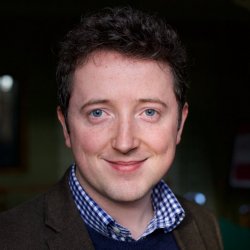Designing conservative and accurately dissipative numerical integrators in time
Speaker(s): Patrick Farrell (Mathematical Institute, University of Oxford)
Time: 16:00-17:00 October 28, 2024
Venue: Room 77201, Jingchunyuan 78, BICMR
Title: Designing conservative and accurately dissipative numerical integrators in time
Time: 16:00 – 17:00
Abstract: Numerical methods for the simulation of transient systems with structure-preserving properties are known to exhibit greater accuracy and physical reliability, in particular over long durations. These schemes are often built on powerful geometric ideas for broad classes of problems, such as Hamiltonian or reversible systems. However, there remain difficulties in devising higher-order-in-time structure-preserving discretizations for nonlinear problems, and in conserving non-polynomial invariants.
In this work we propose a new, general framework for the construction of structure-preserving timesteppers via finite elements in time and the systematic introduction of auxiliary variables. The framework reduces to Gauss methods where those are structure-preserving, but extends to generate arbitrary-order structure-preserving schemes for nonlinear problems, and allows for the construction of schemes that conserve multiple higher-order invariants. We demonstrate the ideas by devising novel schemes that exactly conserve all known invariants of the Kepler and Kovalevskaya problems, arbitrary-order schemes for the compressible Navier–Stokes equations that conserve mass, momentum, and energy, and provably dissipate entropy, and multi-conservative schemes for the Benjamin-Bona-Mahony equation.

Patrick E. Farrell is a professor in the Numerical Analysis group of the University of Oxford, and a Tutorial Fellow at Oriel College, Oxford. He works on the numerical solution of partial differential equations, with a particular focus on
1. finite element methods,
2. bifurcation analysis of nonlinear PDE,
3. adjoint techniques, their application and automation,
4. preconditioners and fast solvers.
Professor Farrell has applied the numerical techniques he develops to various applications, in the areas of renewable energy, cardiac electrophysiology, glaciology, magnetohydrodynamics, quantum mechanics, and liquid crystals. Professor Farrell leads the development of dolfin-adjoint and defcon, and regularly commits to PETSc, petsc4py, and firedrake.


